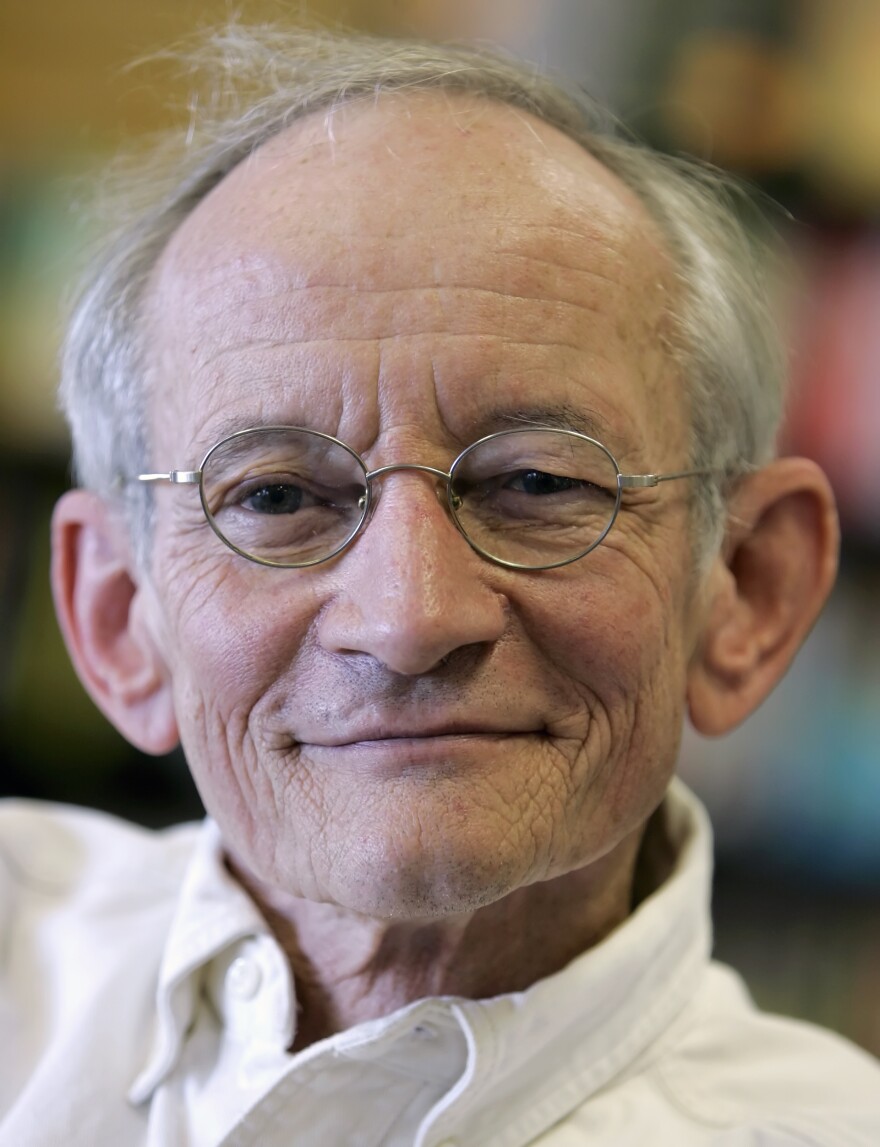Most of us heard poetry as babies — nursery rhymes, lullabies, that sort of thing. By the time we reach adulthood, though, poetry is no longer part of our every day lives.
Former U.S. Poet Laureate Ted Kooser says poetry has become something scary. Kooser traces that fear back to the early 20th century, when modernist poets like T.S. Eliot and Ezra Pound were popular.
“My former mentor once said that Eliot and Pound were the Hiroshima and Nagasaki bombs that fell on American poetry,” Kooser says, only half-joking.
He believes that where poetry was once an art form accessible to most people, these two writers transformed it into something available only to a select group: the elite intelligentsia.
“You had to be educated to understand what it was,” Kooser says.
As far as Kooser’s concerned, the American public education system compounded the problem. “They decided they would teach poems as if they were problems that had to be solved and the teacher had the solution. So what fun is that?”
During his tenure as poet laureate, Kooser made it his business to make poetry fun, to promote the art and craft of poetry to as wide an audience as he could reach. To that end, he launched a weekly newspaper column called “American Life in Poetry.” At its peak, more than 200 papers ran the poems Kooser selected. The series continues in print, and online it reaches more than 3 million readers.
Kooser says he wants to attract an audience that didn’t necessarily study literature. That’s a person he knows well. Although Kooser has been writing poetry for most of his adult life, he had what he calls an avocation in the insurance industry.
Kooser was forced to drop out of graduate school because he says he only wanted to write poetry, and neglected his other schoolwork. To support his habit, he landed a job as an insurance clerk. "Turns out I was pretty good at it," he jokes.
Kooser doesn’t write much about that aspect of his life. Instead, he calls himself an elegiac poet, and says he’s been that way since he was a young writer. Not too long ago the University of Nebraska invited Kooser to speak. The subject was “The Last Lecture,” and the organizers wanted him to speak as if it was the final talk he’d ever give.
Kooser consulted his wife about the invitation. “She said, Ted, you’ve been giving your last lecture all your life.”
He smiles as he tells the anecdote, but Kooser's poems deal with personal losses: the lives and deaths of his parents, his friends, cherished pets. At first read, each poem seems small, intimate. A second examination reveals the poet reaching to connect his own life to the universal human condition.
Kooser’s collection “Delights and Shadows,” published by Port Townsend-based Copper Canyon Press, won the 2005 Pulitzer Prize for poetry. Copper Canyon has just issued Kooser’s 13th book, “Splitting an Order.”
In addition to many poems on the subject of aging, love and loss, the collection features a long essay about a murder that took place at an apartment where Kooser once lived as a young man with his first wife and their son. The poet confesses the murder shocked him, and left him disconcerted, even though he hadn't inhabited that building for decades.
These days Kooser spends most of his time at his rural Nebraska home, where he says he tries to write every day. “Twenty-eight out of 30 of those poems are awful,” Kooser chuckles. But he says poetry is like any craft: practice and discipline take you a long way.
You can hear Kooser Thursday, October 2 at 7:30 at Chihuly Garden and Glass, presented by Seattle Arts and Lectures.


